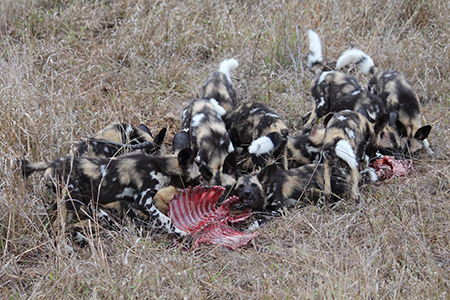Blood parasites were recently shown to be highly prevalent in African wild dog populations, according to Dr Edward Netherlands and colleagues from the Faculty of Natural and Agricultural Sciences at the North-West University (NWU).
Their study on blood parasites of species of Hepatozoon indicates that these parasites are common in African wild dog or painted wolf (Lycaon pictus) populations.
The study was conducted as part of a general health survey of African wild dogs in the Kruger National Park, and was titled “Molecular confirmation of high prevalence of species of Hepatozoon infection in free-ranging African wild dogs (Lycoan pictus) in the Kruger National Park, South Africa.”
Dr Netherlands says the research entailed collecting blood samples from 54 animals and screening the samples for the presence of parasites using molecular methods, namely PCR testing.
According to the study by Dr Netherlands and colleagues, at first sampling, specimens from 42 of 54 individuals (77,7%) were positive for the species of Hepatazoon parasite. Between 51 and 69 days later, 20 dogs were sampled again. Assuming that all 54 individuals were still alive, the prevalence had therefore increased to 48 individuals infected, or 88,8%.
African wild dogs are iconic animals that are listed as endangered according to the African Wildlife Foundation. Their status makes the species important to monitor, especially in terms of their parasites and potential diseases that may threaten these dwindling populations even further.

Dr Edward Netherlands.

Blood parasites of species of Hepatozoon.

The iconic African wild dogs.
